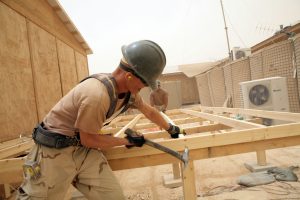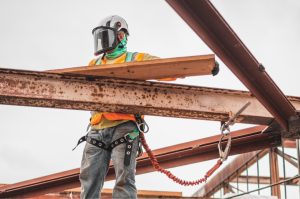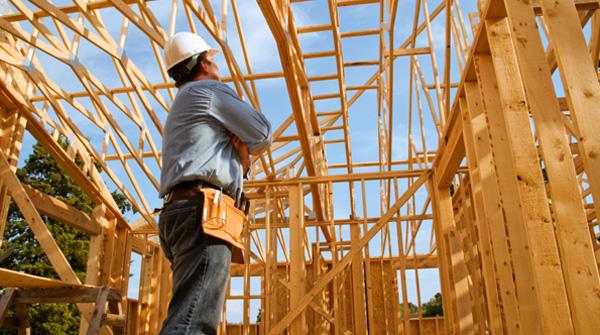What Does a Builder Do?
A builder is a skilled professional who plays a crucial role in the construction industry. They are responsible for overseeing and coordinating various aspects of a building project, from the initial planning stages to the final completion. Builders work on a wide range of projects, including residential, commercial, and industrial constructions. In this article, we will explore the key responsibilities and tasks of a builder.
1. Project Planning and Management
One of the primary responsibilities of a builder is to plan and manage the entire construction project. This involves tasks such as reviewing architectural plans, estimating project costs, and creating a timeline for completion. Builders need to have a deep understanding of construction processes, materials, and techniques to ensure that the project is executed efficiently and within budget.
Additionally, builders are responsible for procuring necessary permits and licenses, hiring subcontractors and suppliers, and coordinating the work of different teams involved in the project. They act as the central point of contact for all stakeholders and ensure effective communication and collaboration throughout the construction process.
2. Construction Site Supervision
Builders are present on-site to supervise and monitor the progress of construction activities. They ensure that the work is being carried out according to the plans and specifications while adhering to relevant building codes and regulations. Builders coordinate with subcontractors, craftsmen, and laborers to ensure that the construction work is executed to the highest standards of quality and safety.

Site supervision involves overseeing activities such as excavation, foundation work, framing, electrical and plumbing installations, and finishing touches. Builders inspect the work regularly, address any issues or concerns, and make necessary adjustments to keep the project on track.
2.1 Quality Control
Quality control is an essential aspect of a builder’s role. They conduct regular inspections to ensure that the construction meets the required quality standards. Builders inspect materials, finishes, and workmanship to identify any defects or deviations from the plans. They work closely with architects and engineers to address any quality concerns and make necessary corrections.
2.2 Safety Compliance
Builders prioritize safety on the construction site. They enforce safety regulations and ensure that workers follow proper procedures and use appropriate protective equipment. Builders conduct regular safety meetings, inspections, and audits to identify potential hazards and mitigate risks. They work closely with safety officers and implement measures to create a safe working environment for everyone involved in the project.
3. Cost Control and Budget Management
Builders are responsible for managing the project’s budget and ensuring cost control throughout the construction process. They estimate project costs, prepare budgets, and monitor expenses. Builders negotiate with suppliers and subcontractors to obtain competitive prices for materials and services without compromising on quality.
During the construction phase, builders track expenses, review invoices, and make necessary adjustments to stay within the allocated budget. They also prepare progress reports and financial forecasts to keep stakeholders informed about the project’s financial status.
4. Problem Solving and Decision Making
Construction projects often encounter unforeseen challenges and obstacles. Builders need to be skilled problem solvers and decision-makers. They identify issues, propose solutions, and make decisions that keep the project moving forward. Builders collaborate with architects, engineers, and other professionals to evaluate alternatives and choose the most suitable course of action. https://nazbuild.com.au/builder-in-sunshine-coast/

Whether it’s resolving design conflicts, managing schedule changes, or addressing unexpected site conditions, builders play a crucial role in ensuring the successful resolution of problems. They need to think critically, analyze risks, and consider the long-term implications of their decisions to ensure the best possible outcomes for the project.
4.1 Adaptability
Builders must be adaptable and flexible in their approach. Construction projects are dynamic, and circumstances can change rapidly. Builders need to be able to adjust plans and strategies as needed to accommodate unexpected challenges or modifications to the project scope. They must be able to think on their feet and find creative solutions to keep the project on track.
4.2 Communication and Collaboration
Effective communication and collaboration skills are essential for builders. They need to communicate clearly and concisely with various stakeholders, including clients, architects, engineers, subcontractors, and laborers. Builders must ensure that everyone involved in the project understands their roles and responsibilities and has access to the information they need to perform their tasks efficiently.
Builders also collaborate closely with architects and engineers to interpret plans and specifications and ensure their successful implementation. They act as a bridge between different teams and facilitate coordination and teamwork to achieve project goals.
5. Client Relations
Builders have direct interactions with clients throughout the construction process. They understand the clients’ vision and expectations for the project and work to deliver results that meet or exceed those expectations. Builders provide regular updates on the progress of the project, address any concerns or questions the client may have, and provide guidance on design choices or alternatives when necessary.
Building strong client relationships is crucial for builders as it can lead to repeat business and positive referrals. By ensuring client satisfaction, builders contribute to their reputation and help foster long-term partnerships in the industry.
Conclusion
Builders play a multifaceted role in the construction industry, overseeing and coordinating various aspects of building projects. From project planning and management to construction site supervision, cost control, problem-solving, and client relations, builders are instrumental in bringing construction projects to life.

